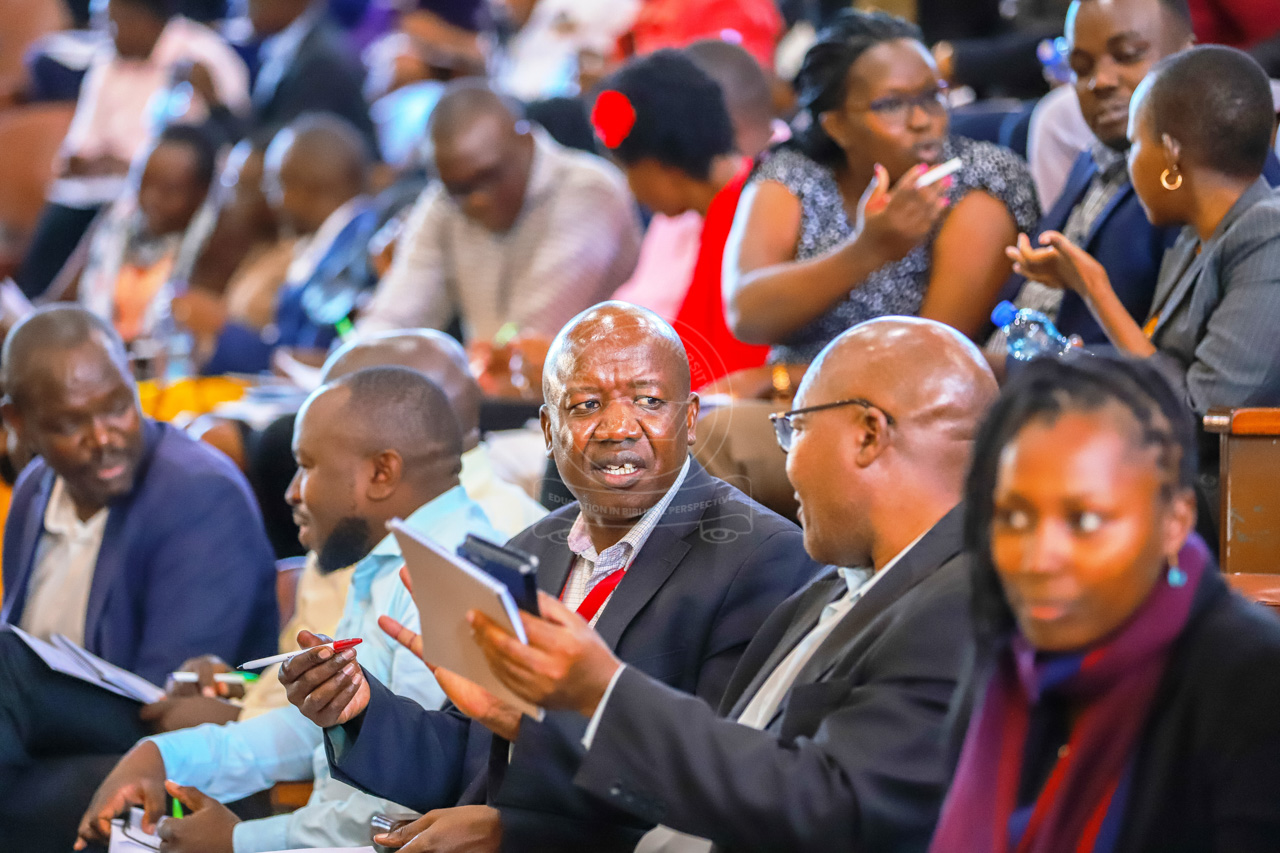In a bid to enhance the quality of education and teaching practices, Kabarak University's Directorate of Excellence in Learning and Teaching recently organized a training session on Competency-Based Education (CBE) for its staff members. The training, held at the university auditorium, aimed to equip the participants with a comprehensive understanding of the essence of CBE, the distinction between Competency-Based Curriculum (CBC) and Knowledge-Based Curriculum (KBC), 21st-century skills in higher education, the Basic Education Curriculum Framework (BECF), the implications of BECF to the curriculum, and the challenges and solutions in implementing CBC.
The training commenced with an in-depth exploration of the essence of CBC from Prof. B.J.A Ngala Ph.D., MBS, OGW, the Dean School of Education Social Sciences and Humanities. Competency-Based Education focuses on the development and mastery of specific skills, knowledge, and attitudes required for success in various fields. It emphasizes outcomes and aims to produce graduates who are not only knowledgeable but also possess the practical abilities and competencies demanded by the workforce.
A key point of distinction covered in the training was the difference between CBC and KBC. While the traditional Knowledge-Based Curriculum primarily focuses on imparting subject-specific knowledge, Competency-Based Curriculum places equal emphasis on the acquisition of skills, application of knowledge, and the development of a range of competencies needed for real-world challenges. CBC is learner-centered, promoting active engagement and critical thinking, thereby equipping students with the skills necessary for success in their chosen professions.
The discussion then shifted towards the significance of 21st-century skills in higher education facilitated by Prof Gladys J. Kiptiony. In today's rapidly evolving world, employers seek graduates who possess a broad set of skills beyond mere academic knowledge. These skills include critical thinking, problem-solving, communication, collaboration, adaptability, and digital literacy. The training emphasized the need for higher education institutions to incorporate these skills into their curricula to ensure graduates are well-prepared for the demands of the modern workforce.
The Basic Education Curriculum Framework (BECF) was also a focal point of the training. The BECF provides a comprehensive structure for the development and implementation of the Competency-Based Curriculum in basic education. It outlines the learning areas, competencies, and learning outcomes that students are expected to achieve at different stages of their education. The participants gained insights into how the BECF serves as a guide for curriculum developers and educators in designing and delivering effective instruction aligned with the principles of CBC.
The training delved into the implications of BECF for curriculum development. It emphasized the need for a shift from content-heavy approaches to curriculum design, focusing instead on clearly defined competencies and learning outcomes. The participants explored strategies to align curriculum, instruction, and assessment to ensure seamless integration of the BECF into the education system.
Implementing CBC presents its own set of challenges, which were thoroughly discussed during the training. The participants engaged in discussions surrounding issues such as designing appropriate assessment methods, providing professional development opportunities for educators, ensuring the availability of suitable learning resources, and addressing the concerns of various stakeholders involved in the education system. The training provided valuable insights into overcoming these challenges and offered potential solutions to facilitate the successful implementation of CBC.











